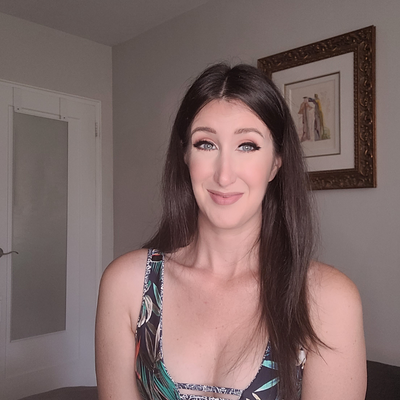The story of Jaclyn
Within the second of my family doctor walking into the room, “oh, you have lichen sclerosus,” slipped out of her mouth.
Let’s rewind.
I started experiencing pain with sex in my early 20s. It began as mild discomfort but grew in complexity and intensity as the years passed. In particular, I noticed a lot of burning during and after sex. I also experienced tearing of the vulva during sex; this was incredibly distressing. None of my friends ever spoke about tearing open from penetrative sex, nor had I ever heard about this in sex education. Suffice it to say, I was terrified.
As time went on, the tearing happened even when I was not having penetrative sex. I could tear my vulva just by walking down the street. I constantly felt as if someone made a hundred papercuts all over my vulva and then poured rubbing alcohol over it.
I visited many doctors over the next ten years. As a graduate student, I hopped around different cities and never had a family doctor. This meant I often saw a different doctor each time, which did not help my case. I was told it was normal to have pain during sex, that it was just part of “being a woman.” I will not even get into how layered and deeply problematic that statement is. Further, I had doctors tell me the pain was just from stress, that my partner must be too big, and that I should try drinking wine before sex.
I knew deep down that something was wrong, but what could I do? Doctor after doctor told me I looked great down there, and it was in my head; in time, I started to believe them.
Around 30 years old, I started to experience chronic vulvar itching that would not resolve with yeast medication. The itch was on and off, but when I had it, it was severe enough to wake me up in the middle of the night. I also started to feel a sensation as if parts of my vulva were ‘sticking together.’ However, I chalked it up to being humid and sticky. Unbeknownst to me, I was experiencing labial fusing.
After completing my Ph.D., I settled down and found a general physician. She listened to my symptoms and did a clinical examination. Within seconds of looking at my vulva, she said, “you have lichen sclerosus.” Previous doctors had examined my vulva but must not have been familiar with lichen sclerosus. I had all the classic signs and symptoms of lichen sclerosus. Symptom-wise, I had chronic itch, pain with sex, burning, fissures, and tearing. Concerning signs, my vulva had significant hypopigmentation (the pink-colored tissue had turned all white), and I had labial adhesions and clitoral phimosis.
Walking home from the doctor’s office, I had mixed emotions. On the one hand, I felt validated; a name, finally, a name. It was not all made up in my head. I had an actual condition that was causing my vulva to scar over, fuse, tear, crack, fissure, hurt, and itch. On the other hand, I felt terrified. The doctor said it was an incurable autoimmune disease that put me at a higher risk for developing vulvar cancer. She also said it causes sexual dysfunction. I thought this was the end of my sex life. I became consumed with worries about my vulva completely scarring over and developing vulvar cancer.
Luckily, I found a great support system and educated myself about lichen sclerosus, how it is managed, what remission means, etc. In time, by working with a sex therapist, pelvic floor physical therapist, dilators, and using my steroid medication, my hypopigmentation resolved, and the texture of my vulvar tissue improved. By nine months, I was in remission and had no more symptoms. I have been in remission for two years and seven months.
Being diagnosed with lichen sclerosus significantly impacted my mental health and the quality of my life. This motivated me to get involved with the lichen sclerosus community to make a change for the better. I created The Lost Labia Chronicles – a content hub for evidence-based lichen sclerosus information and support for the sexual and mental health aspects of the disease. I have written eBooks, blog posts, and YouTube videos and hosted educational and support workshops for folks with vulvar lichen sclerosus. I have partnered with Lichen Sclerosus Support Network for content creation. I co-facilitate free, bi-weekly virtual support groups and offer 1:1 support calls for folks looking for more individualized education and support. As a patient representative and partner, I am involved in a handful of lichen sclerosus research projects.
Vulvar lichen sclerosus is considered a rare disease. It is part of why it took me over a decade to get my diagnosis. It needed to progress to the point where the texture of my vulvar skin was thickened, the skin was all white, and I had scarring, significant loss, and changes to my anatomy. The average time of diagnosis ranges from 5-15 years. That is a long time for folks to suffer alone.
Further, the risk of vulvar cancer increases as the lichen sclerosus goes untreated. This means that some folks get the lichen sclerosus diagnosis when they are diagnosed with vulvar lichen sclerosus. This needs to change. I am honored to participate in the community and actively fight for change.
